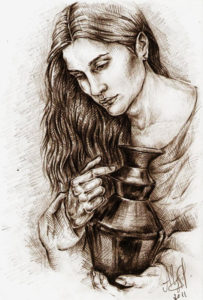Mary.
January 13, 2019The Journey
by Mary Oliver
One day you finally knew
what you had to do, and began,
though the voices around you
kept shouting
their bad advice–
though the whole house
began to tremble
and you felt the old tug
at your ankles.
“Mend my life!”
each voice cried.
But you didn’t stop.
You knew what you had to do,
though the wind pried
with its stiff fingers
at the very foundations,
though their melancholy
was terrible.
It was already late
enough, and a wild night,
and the road full of fallen
branches and stones.
But little by little,
as you left their voices behind,
the stars began to burn
through the sheets of clouds,
and there was a new voice
which you slowly
recognized as your own,
that kept you company
as you strode deeper and deeper
into the world,
determined to do
the only thing you could do–
determined to save.
-Mary Oliver
“We are who we protect. Who we stand up for.”
sohbet
“Sin as such does not exist. You only bring it into manifestation when you act in ways that are adulterous in nature. It is for this very reason that the Good has come among you pursuing its own essence within nature in order to reunite everything to its origin.”
“All of nature with its forms and creatures exist together and are interwoven with each other. They will be resolved back, however, to their own proper origin, for the compositions of matter return to the original roots of their nature. Those who ears, let them hear this.”
-Rabini
Wisdom Questions
In the Near East “wisdom teacher” is a recognized spiritual occupation. I was taught that there were only two categories of religious authority: one could be a priest or a prophet. That may be how the tradition filtered down to us in the West. But within the wider Near East (including Judaism itself), there was also a third, albeit unofficial, category: a moshel moshelim, or teacher of wisdom, one who taught the ancient traditions of the transformation of the human being.
They spoke to people in the language that people spoke, the language of story rather than law.
Jesus not only taught within this tradition, he turned it end for end. Before we can appreciate the extraordinary nuances he brought to understanding human transformation, we need first to know something about the context in which he was working.
Jesus was not a priest. He had nothing to do with the temple hierarchy in Jerusalem, and he kept a respectful distance from most ritual observances. Nor was he a prophet in the usual sense of the term: a messenger sent to the people of Israel to warn them of impending political catastrophe in an attempt to redirect their hearts to God. Jesus was not that interested in the political fate of Israel, nor would he accept the role of Messiah continuously being thrust upon him.
Rather, he stayed close to the ground of wisdom: the transformation of human consciousness. He asked timeless and deeply personal questions: What does it mean to die before you die? How do you go about losing your little life to find the bigger one? Is it possible to live on this planet with a generosity, abundance, fearlessness, and beauty that mirror Divine Being itself?
These are the wisdom questions, and they are the entire field of Jesus’ concern.
-Cynthia Bourgeault, Episcopal priest and one of CAC’s [Center for Action & Contemplation] core faculty members.

